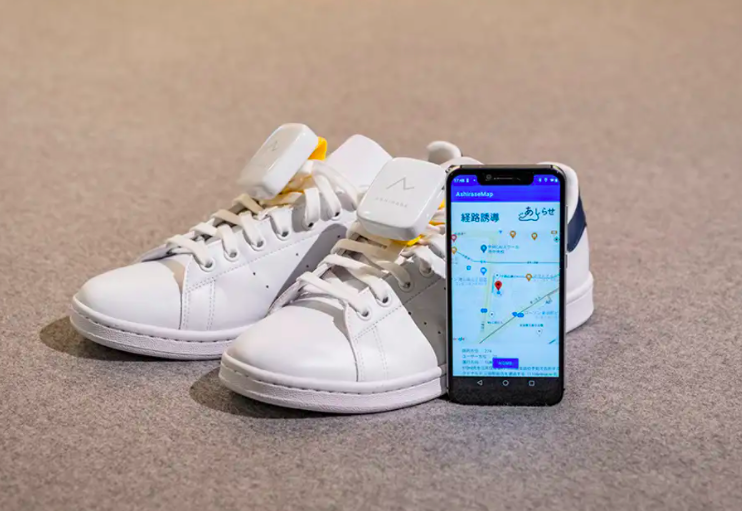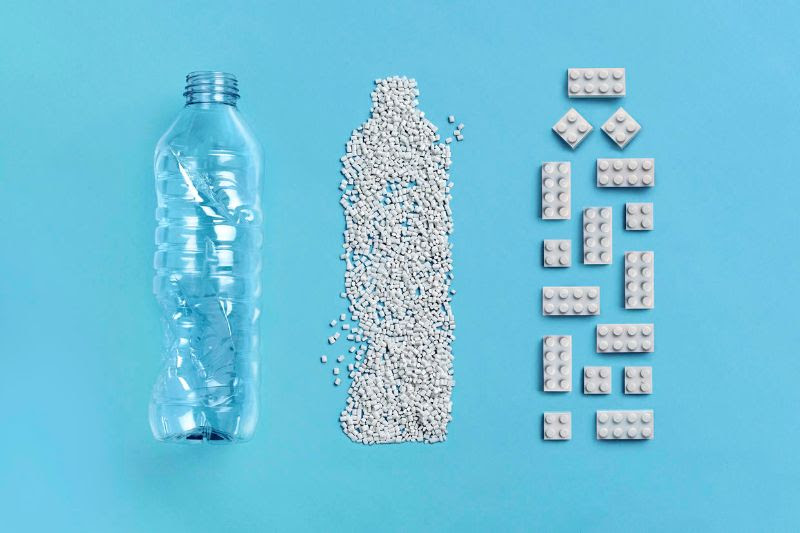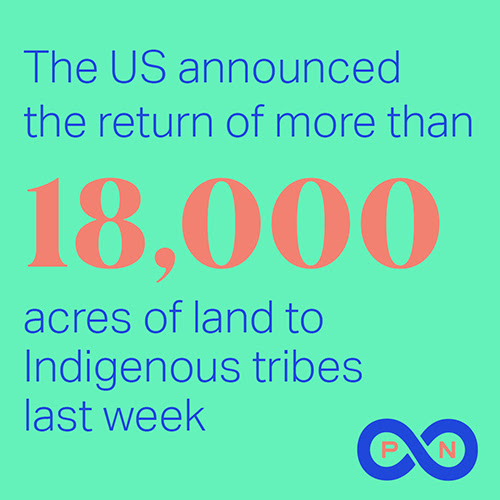Volcanoes are erupting in The Philippines, but on-fire Australia received some welcome rain. The Iran war cries have been called off and The Donald’s military powers are about to be hamstrung by the Senate. Meanwhile, his impeachment trial is starting, and we’re all on Twitter for a front-row seat.
What Could Go Right? COVID immunity for years
Plus new tech for disaster aid (that actually works), what everyday item has saved hundreds of thousands of lives, and more progress news from our weekly newsletter.
This is our weekly newsletter, What Could Go Right? Sign up here to receive it in your inbox every Thursday at 6am ET. You can read past issues here.
The horrifying building collapse in Miami, Florida is on a lot of minds this week. To borrow an idea from Buddhist philosophy, death and disaster will always be with us. To borrow an idea from our mission, there is frequently an astonishing array of human ingenuity working to lessen those events’ harmful impact—and to prevent them from happening in the first place. Here are two recent innovations aiming to do just that.
Drones, which can see and go where humans and rescue dogs can’t, are already used post-disaster to find survivors and drop supplies; German engineers are now working on a drone prototype that could locate survivors by listening for screams and other noises of distress. Dark, we know, but we welcome anything that could help.
Over in the Indonesian capital city of Jakarta, a Twitter-based “disaster bot” is crowdsourcing real-time information about natural disasters that citizens and emergency services alike use for evacuations and other life-saving efforts. (Two things we learned from this article: Jakarta is prone to flooding, and Jakartans love to tweet.) It’s kind of like if the American crime app Citizen was only about earthquakes and fires—the on-the-ground updates tell users what roads are still open, for instance, or which hospitals are still operational. This information is a serious update to what Indonesian emergency management agencies were doing before, which was sending out PDF documents, updated every six hours. The disaster bot works so well that the Philippines, Hong Kong, and Vietnam are now using it, too.
Since we’re on a tech roll, here are a few things that we’re betting will improve human life in the near future: American scientists have developed a battery-free pacemaker that dissolves into the body when no longer needed, freeing patients from the risk of heart damage when the pacemakers we have now are taken out. It costs a mere $100. The pacemaker, which looks like a miniature tennis racket, still has to pass through additional phases of the regulatory process, which may take a few years. So, too, does a new spinal implant that could help control chronic pain.
One Japanese company is working on a device that it is hoping will totally replace a walking cane for the visually impaired. Strapped onto shoelaces, it buzzes to tell the wearer where to go, based on a route inputted into an accompanying app. And forget mRNA (actually, don’t)—this new cholera vaccine developed by Japanese researchers is stored in edible rice. To take it, just add water.

Honda-funded startup Ashirase’s shoe for the visually impaired.
Nervous about COVID variants? A study, published on Monday, says that the Pfizer-BioNTech and Moderna vaccines may provide immunity for years, which means those vaccines may not need boosters. We don’t know yet about non-mRNA vaccines, but according to a new study from the UK, it looks like mixing an AstraZeneca dose with another from Pfizer or Moderna, as Spain and Germany are already doing, works well. And a positive sign for vaccinated, breastfeeding women: traces of the vaccines are not appearing in breast milk, but COVID antibodies are, so breastfed babies may be receiving some protection.
We empathize with any Australian readers heading once again into lockdown and appreciated this call from Australian scientists to donate $10 to global vaccination efforts after receiving your vaccine. You can do so here, through UNICEF. We can’t say it enough: we’re all in this together, guys, and the more we get the world vaccinated, the less we need to worry about variants. Not to mention that poorer countries are pretty pissed off about how the vaccine rollout has gone down. “This is a deliberate global architecture of unfairness,” said Strive Masiyiwa, head of Africa’s vaccination acquisition task team at the Milken Institute’s Future of Health Summit. “So let’s call it what it is.”
For a macro-view, TIME did a fantastic job of summing up all the health breakthroughs we’ve had during the pandemic, including several that we’ve covered in this newsletter, from quashing wild polio in Africa to the psychedelic mental health revolution.
Before we go, one day after Pride Month, three last stories to celebrate. Malawi, where homosexuality is still illegal and a conviction could land you in jail for up to 14 years, celebrated its first Pride parade. Malawian governments since 2012 have been promising various levels of change around the laws; we haven’t seen substantive progress yet, but public sentiment matters, so our hats off to the parade-goers. The US has its first transgender Miss USA contestant, Kataluna Enriquez, who was just crowned Miss Nevada. And New Jersey, following a civil rights suit brought by the ACLU, will now house prison inmates according to their gender identity.
Below in the links section, North Macedonia gets a huge national park and the UK is kicking junk food advertisements off the TV. Also, you’ve heard about all the states restricting voting—what about the states (including red ones) making it easier?

Lego announced plans this week to start making its toy bricks entirely out of recycled plastic. The latest prototype, made using polyethylene terephthalate (PET) recycled from discarded plastic bottles, is set to enter the next stage of testing, which the company said will take at least another year. “We know kids care about the environment and want us to make our products more sustainable,” said Tim Brooks, Lego’s VP of environmental responsibility. “Even though it will be a while before they will be able to play with bricks made from recycled plastic, we want to let kids know we’re working on it and bring them along on the journey with us.” Image: LEGO.
From us: TPN Founder Zachary Karabell spoke with TPN Member Gillian Tett, editor-at-large for the Financial Times (US), to imagine what a more sustainable and human capitalism might look like. Watch the entire conversation or read an extract from it here.
Are we at the start of this century’s Roaring Twenties? That’s what the charts and lots of smart people predict. TPN Member Diane Francis takes a closer look in her latest piece, The Roaring Twenties 2.0.
Progress, Please
(Found good news? Tweet at us @progressntwrk or email.)
Other good stuff in the news
United States:
- Brought to you by the pandemic: no-excuse absentee voting, mail-in voting, early voting | Politico
- The DOI announced the return of the National Bison Range to Indigenous tribes | The Hill
- A sign climate change may not be a partisan issue soon? Republicans form climate caucus | Washington Examiner
- The US economy grew 6.4% in the first three months of 2021, and some say it’s just getting started | AP
- Connecticut restored voting rights to people with past convictions, marking a milestone in the push to end criminal disenfranchisement | The Brennan Center
International:
- The world’s first industrial cultured meat facility opened in Israel | Jewish News Syndicate
- Making up for lost time, the EU is vaccinating at a rapid pace | The Economist
- France is poised to ease the path to parenthood for single and lesbian women | DW
- North Macedonia is expected to make its Shar Mountain a national park, which would make it one of the largest in Europe (thanks to reader Sarah for this one!) | AP
- Germany voted to lift citizenship restrictions for descendants of Nazi victims | DW
- Scandinavian cities are working to clean up one of the world’s most high-emission industries | BBC
- The UK will ban junk food advertising online and before 9pm on TV starting in 2023 | The Guardian
- Three smart solutions to the tens of thousands of pieces of space junk orbiting our planet | Positive News
TPN Member originals
- George Packer talks about the path toward a more unified America | Yascha Mounk
- How to turn Facebook and other social media platforms from bugs into features | Robert Wright
- If you know the term “institutional racism,” it’s because of this man: Stokely Carmichael would have been 80 this year | Peniel E. Joseph
- Stopping 180ism: “the tendency of many participants in public debate to hear what their perceived enemies have to say and immediately declare themselves diametrically opposed” | Yascha Mounk
- Why COVID nostalgia is . . . good? | Jason Feifer
- What today’s GOP demonstrates about the dangers of partisan conformity | Robert B. Talisse
- Did the pandemic prove that only technocrats can save us? | Parag Khanna
- Joanna Macy and Anita Barrows on their timely translation of Rainer Maria Rilke’s Letters to a Young Poet | Krista Tippett
Upcoming Events
Future Cities Briefing: Singapore | Ayesha Khanna | July 7
Why Mobility is Destiny | Parag Khanna | October 13
Tiny Bite of History
Next time you get in the car, say thanks to your three-point seatbelt. We saw this on Twitter this week, and despite what you’ve read about not trusting random Twitter graphics—although we stand by that advice!—what this graphic says is true. (We haven’t been able to verify the quote, though.) The engineer responsible for the three-point seatbelt was Nils Bohlin, and his invention is estimated to have saved hundreds of thousands of lives, even though drivers and passengers, used to two-point seatbelts that went only across the waist, were not interested in the new three-point version when it first rolled out, and backseat seatbelts were not widely adopted until 1967.
Read more about the three-point seatbelt here.
Try a Daily Dose of Progress

You like us, you love us, you want more of us. If hearing about progress once a week is just not enough, our Instagram and Twitter accounts publish a Daily Dose of Progress, handpicked from the news by our team. You can find us at @progressntwrk on both platforms.
Until next time, parklet here.


